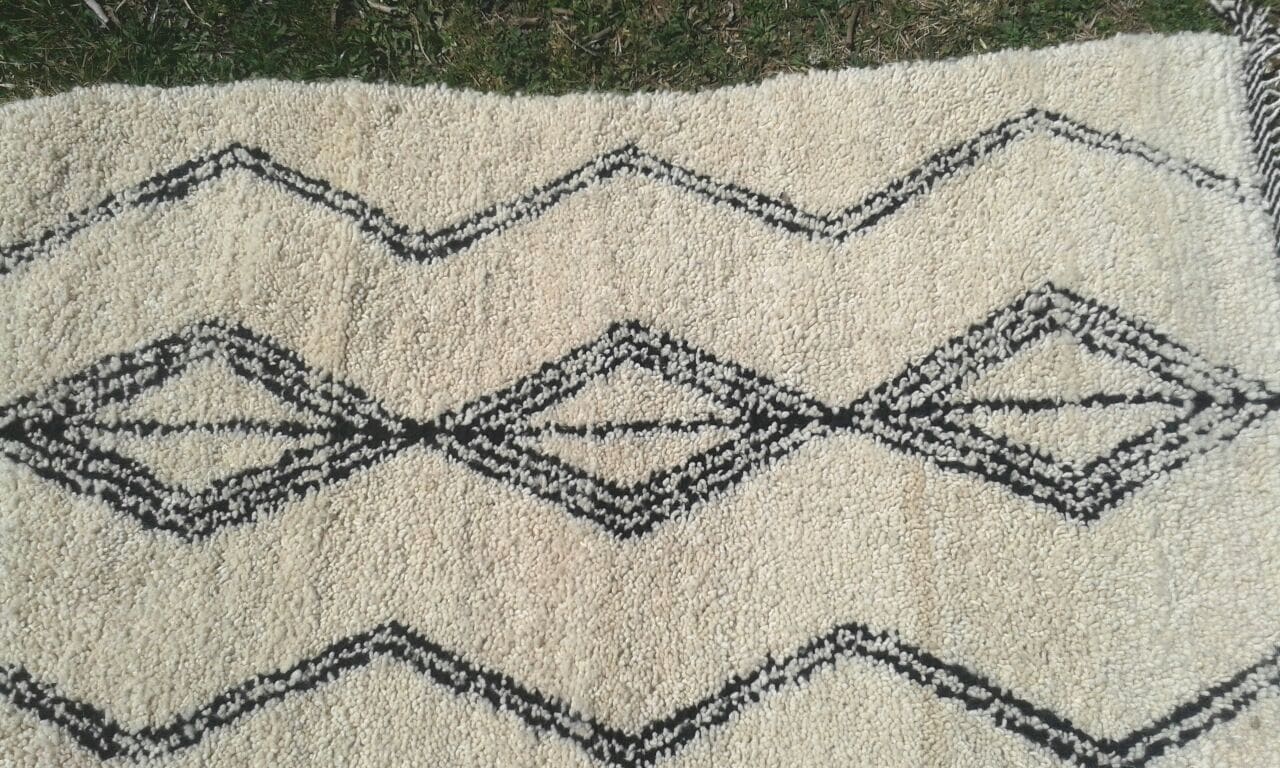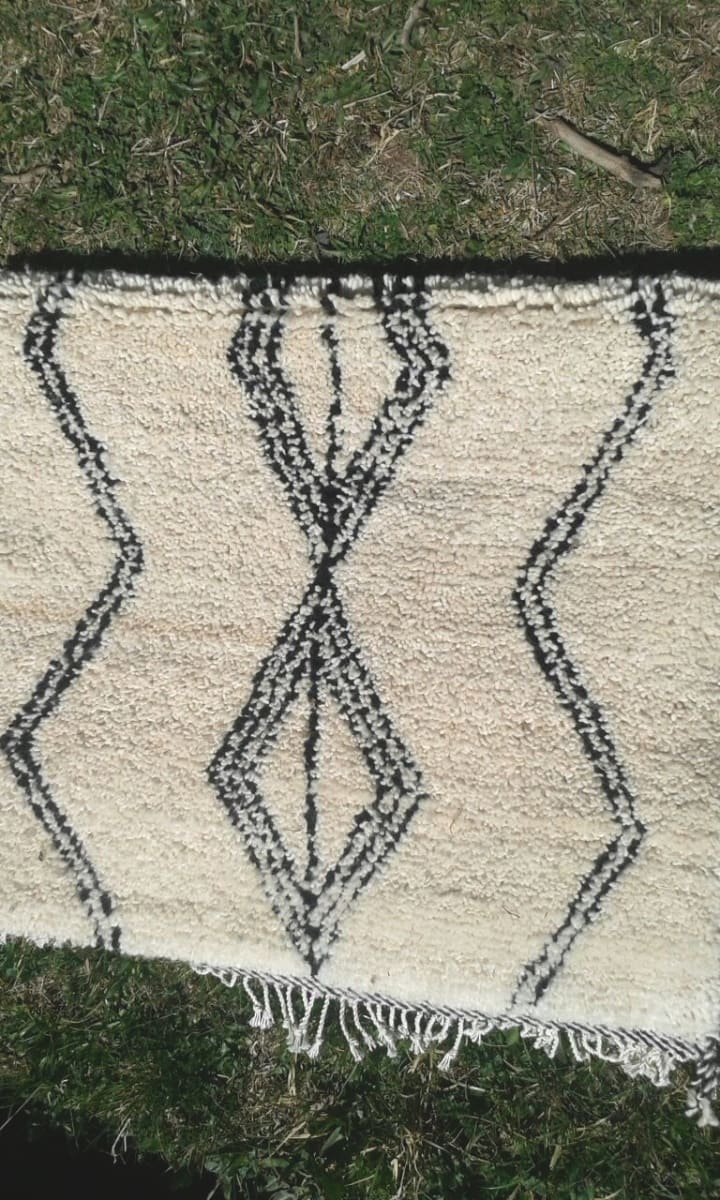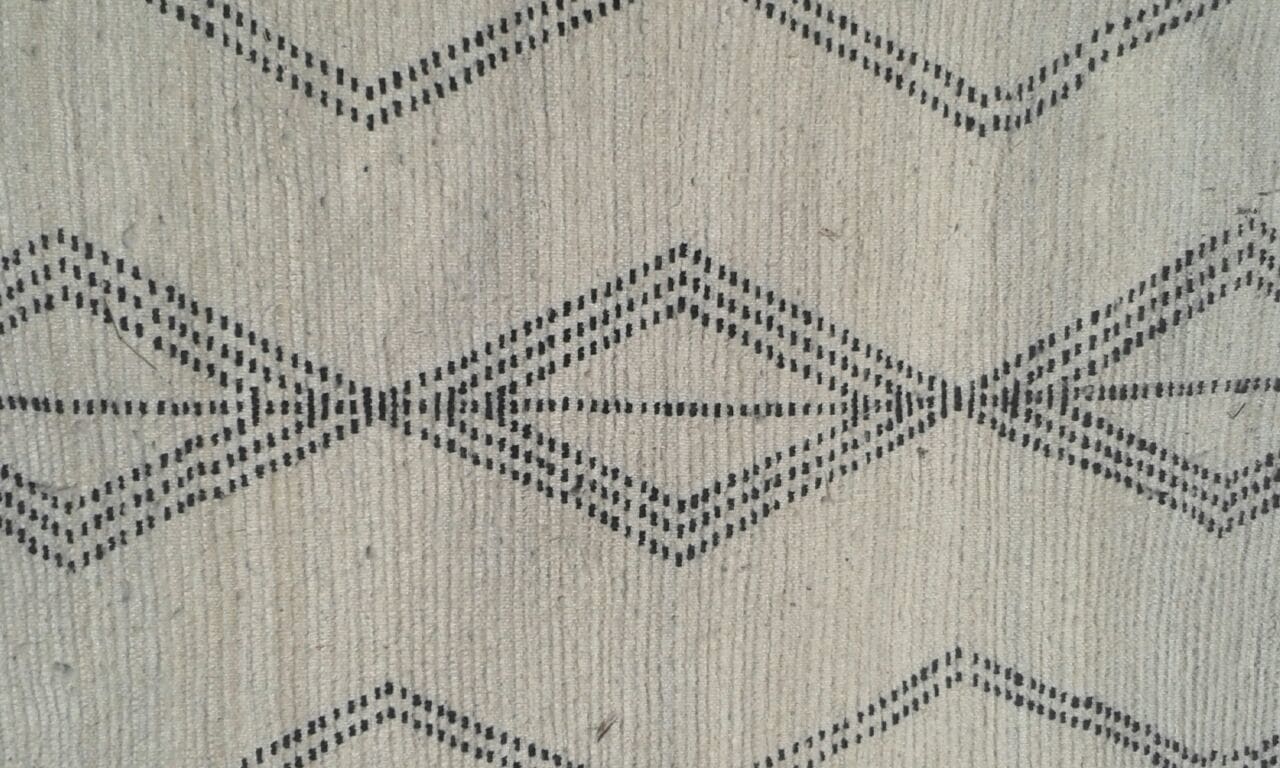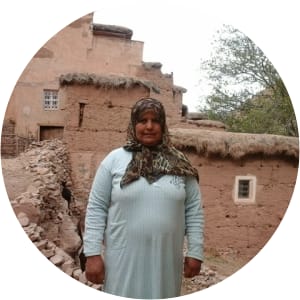
Fatima was born in 1956 in Ixf N'Ighir and is married and the mother of 4 children. She studied through primary school and learned the craft of weaving at a young age from her mother. She joined the cooperative to earn sustainable income and help her husband financially. She is part of the cooperative to empower herself and the rest of the women of the community. Fatima is hopeful that they will be able to find permanent space so that they can teach the rest of the younger women how to weave.
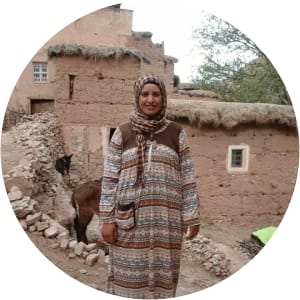
Naima was born in 1992 and is married to the chef of the village. Having attended school through the fifth grade, she dropped out to get married at a young age. She has two children. When she was younger she learned the craft of weaving, and she joined the cooperative to improve her skills in weaving.
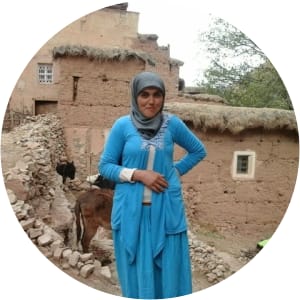
Naima was born in 1999 in Ixf N'Ighir and is not married. Naima attended school through the eighth grade, and learned the skills of weaving from her mother at a young age. She joined the cooperative to improve her skills.
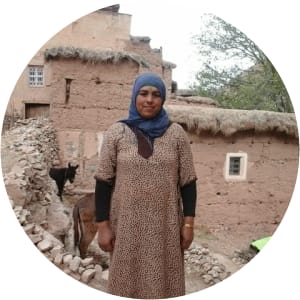
Hara was born in Ixf N'Ighir in 1954 and is married to a man from the local area. She is the mother of eight and has never been able to attend school because there was no school nearby to her childhood home. She learned the craft of weaving from her mother at a young age, specializing in rugs. She joined the cooperative to encourage the women to stay together and not leave the village. She hopes that the cooperative continues to develop and improve the living standards of those in the village.
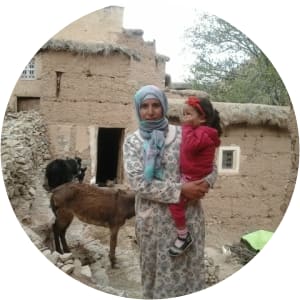
Al Waseh was born in Iskatfan in 1976, is married to one of the local men from the village, and is the mother of three children. She learned the craft of weaving from her mother at a young age, specializing in rugs. As a member of the cooperative, she has been able to develop her skills in the craft and assist her family. Al Waseh has never had the chance to attend school, but hopes that the cooperative can flourish and bring better living standards to the people of the village
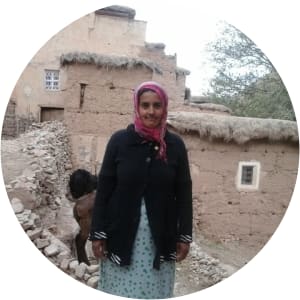
Naima was born in 1986 in Ait Negdel, is married, and is the mother of two children. She hopes that her children can attain full educations, as she has never had the opportunity to attend school herself. As a young girl, she learned the craft of weaving from her mother, focusing on Hanbel. She entered the cooperative to support her family and pay the funds to allow her children to attend school. Naima hopes that the cooperative with continue to grow and thrive.
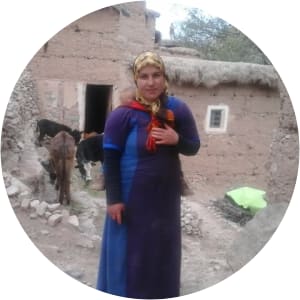
Halima is from Serimt and was born in 1990. She is married with a man from the local village and has attended school through the ninth grade. She left school as her family could not afford to pay the funds for her to attend. As a young girl, however, she learned the craft of weaving from her mother, and has used that skill as a member of the cooperative to earn sustainable income.
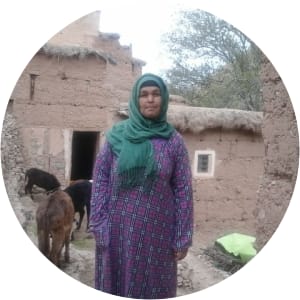
Touda was born in 1967 in Ait Mohammad and moved to Afir to marry her husband. She is the mother of seven and has never attended school because her family could not afford to pay the funds. She originally learned the craft of weaving from a neighbor. As a member of the cooperative, she is able to improve her weaving skills and earn sustainable income to assist and support her children. She hopes that good things come to this cooperative.
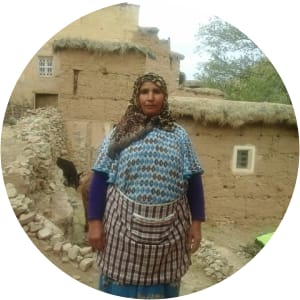
Fatima was born in Agrad Wonzro in 1960, and married a man from the Ixf N'ghir village. She is the mother of two, and wants them to be able to attend school and achieve full education, as she was never able to attend school herself. Fatima learned the craft of weaving from her mother, and entered the cooperative develop her weaving skills.
Beni Ourain rugs are famous for their black and white traditional design. This style comes from the High and Middle Atlas Mountains, and is not only made as a practical warm rug, but also as a decorative rug for celebrations. This simple plush rug can add warmth and a traditional Moroccan feel to any room.
Moroccan artisans are paid a meagre 4% of an average sale online or in local markets.
But with your help we can change that!
Every product on Anou is priced by artisans themselves and Anou shows
exactly where your money goes. When buying handmade Moroccan crafts always ask for pricing breakdowns from sellers.
Reduce the shipping cost to as low as 4% with our beta economy options or grouped shipping discounts built right into your cart. Click the cart in the top right to learn more.


